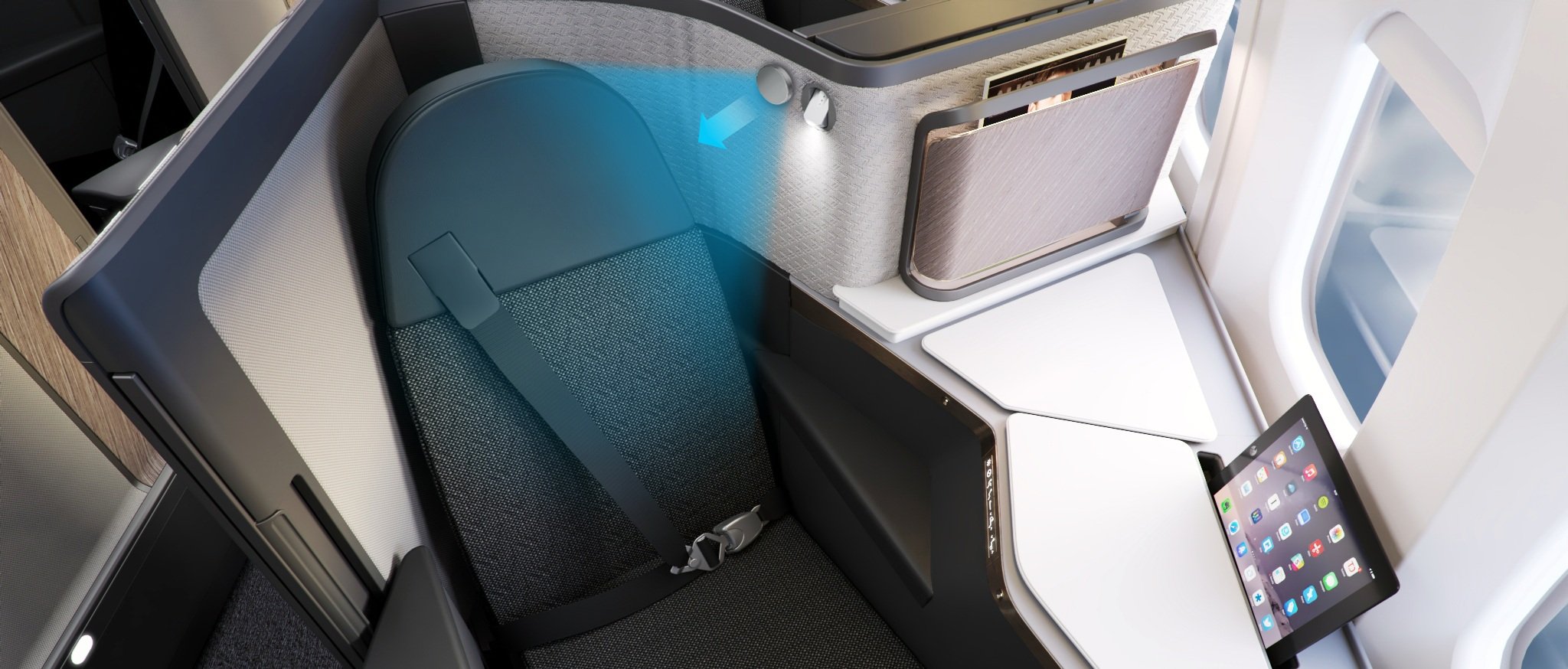
Appealing to the Senses
Taking a fresh look at the sensory touchpoints affecting the cabin experience
Ask a group what “comfort” means to them, and responses are sure to be as diverse and varied as the people asked. Soft blankets and cozy clothes contribute to comfort, but so does warmth from a fire, soothing sounds from a favorite record and fresh fragrances.
Comfort goes beyond physical touch, encompassing everything we see, hear, smell and taste. It’s a holistic sensory experience, with our relative comfort continually being assessed at a subconscious level.
Air travel is no different.
A thorough look at cabin comfort
With many factors subliminal, an improved sensory experience in the cabin can help travelers feel more relaxed, refreshed and comfortable.
Seating, for instance is more than a soft seat cushion – it involves a combination of factors like pressure distribution, heat dissipation or the curvature of a novel seat back to elevate tactile comfort.
The sensory focus extends throughout the cabin, including lighting’s impact on wellbeing, space perception and the exacting science behind preparing food and beverages at altitude.
“One of Collins’ central missions has always centered around providing exceptional ergonomic comfort throughout the cabin,” said Brian St. Rock, Director of Advanced Technology & Laboratories. “But Collins also understands the importance of total sensory comfort and will continue exploring opportunities to expand the definition of air travel comfort.”
Making scents sense of cabin odor
Often considered one of the most powerful triggers to human memory and emotion, smell has an outsized impact on how humans perceive comfort, wellbeing and trust. Just as freshly baked cookies can evoke fond childhood memories, even the smallest trace of malodor can conjure lasting feelings of anxiety, doubt and irritability.
From stale air to odors emanating from a variety of cabin sources, exhaust and engine oils – air travel is often accompanied by a variety of malodors – possibly conjuring negative feelings of disgust, annoyance or even nausea.
The Pothos™ cabin air ionizer is a solution to the stinky situation. Named a 2023 Crystal Cabin Award finalist, the Pothos ionizer deodorizes cabin air quality to levels that mimic – and often times – exceed pristine outdoor conditions.
The compact size of the Pothos air ionizer allows for easy integration throughout the cabin.
Compact and power-efficient, the Pothos ionizer complements current aircraft cabin filtering, easily integrating into environmental control system ducts, passenger service units and lavatories – providing travelers with a fresher, more pleasant-smelling cabin.
Reducing the wall of sound
Auditory comfort is another common complaint. Aircraft cabins can be notoriously loud – whether it’s engine noise, the clatter from onboard services or passenger conversations – the aural assault can cause passengers to feel on edge, unable to fully relax.
Enter Collins Q-Tech™ sound-absorbing metamaterial – also a Crystal Cabin Award finalist for 2023. Engineered with unique properties not found in naturally occurring materials, metamaterials are comprised of structural arrays that influence specific wavelengths.
Q-Tech metamaterial is made of highly engineered, interconnected bulb structures, serving as a replacement for the honeycomb sandwich panels typically used to support cabin surfaces. The unique surface created by these bulb arrays has been shown to reduce noise transmission by 10x when compared to a standard sidewall panel.
“Noise mitigation is critical to providing complete sensory comfort. It’s nearly impossible to fully relax or remain at rest with startling noises or the dull roar of an aircraft.”
Q-Tech metamaterial is highly configurable to target specific noise frequencies, reducing distinct problem noises unique to particular cabin locations – like areas close to engines, seats near slamming lavatory doors or spaces within earshot of crew work areas.
“It’s nearly impossible to fully relax or remain at rest with startling noises or the dull roar of an aircraft,” said St. Rock. “Q-Tech metamaterial can alleviate many of these issues and is flexible to integrate within head rests, sidewalls, seats, monuments, galley equipment and air management systems – bringing added levels of peace and quiet to the cabin.”
Remembering to forget
These often overlooked senses of comfort may not be the first thing to come to mind when you think of relaxation, but it’s certainly memorable when one or more of those senses is under assault – be it by a foul smell, a grating noise or a harsh light.
The building blocks of cabin comfort have long been laid, with continued refinement around cabin seating, catering and lighting. And a sensory-focused cabin experience is quickly becoming a reality – one that puts the subconscious at ease to allow for rest, relaxation and improved personal wellbeing.







